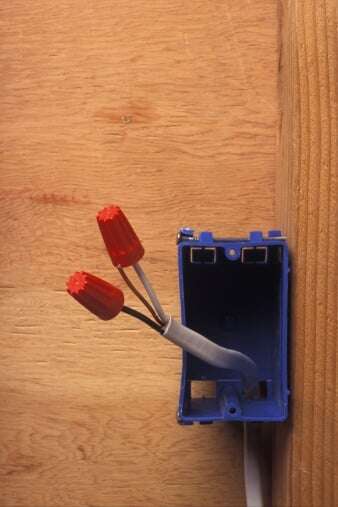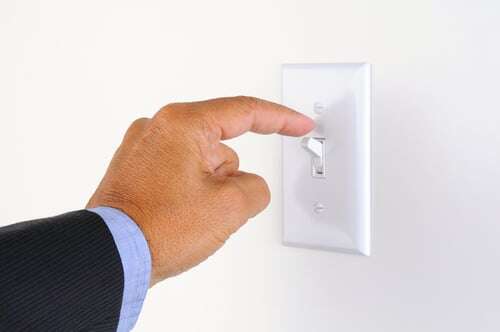 You were in hot pursuit – crawling around on the floor, moving furniture and drapes aside – to find every outlet you could get your hands on to plug in holiday decorations.
You were in hot pursuit – crawling around on the floor, moving furniture and drapes aside – to find every outlet you could get your hands on to plug in holiday decorations.
It was a pleasant surprise to discover an outlet you didn't expect. But you might have found something else: that your home features many two-slot outlets, also known as ungrounded outlets.
Take your time and put the holiday decorations away. But then make a point to call Experts in Your Home. Those outlets can pose a safety hazard and should be addressed in one of three ways. Since the Experts always try to anticipate your questions, here are some questions you might have about both types of outlets, followed by the answers from our team of licensed electricians:
What Do Ungrounded Outlets Look Like?
Ungrounded outlets feature two slots, situated side by side. They are most often, but not exclusively, found in homes that were built prior to 1960 because this is the type of outlet that was called for at the time by the National Electrical Code. The code outlines safe electrical standards, which the electricians at Experts in Your Home follow to the letter.
What Do Grounded Outlets Look Like?
Today's 120-volt outlets feature three openings: two vertical slots and a round hole underneath them. The left slot, slightly larger than the right one, is called the “neutral” slot. The right slot is called the “hot” slot and the hole underneath is called the “ground,” which is why these outlets are called grounded outlets. So the fundamental difference between ungrounded and grounded outlets is the ground wire, which ties into the neutral slot.
What Function Does the Ground Wire Perform?
As a backdrop, it may help to remember that electricity is like water in that it will always choose the path of least resistance. So if anything should go wrong as electricity travels through an outlet, such as a surge, the ground wire serves as a guard. The renegade electricity will travel along the ground wire and back to your home's electrical panel. Without that critical ground wire, that electricity will channel to what lies in its path – namely, electronics and people.
Then What Can Happen?
Unused and untouched by plugs from lamps, appliances and computers, ungrounded outlets pose no hazard whatsoever. It's when they get pressed into duty that certain risks increase considerably:
- The risk of electrical shock
- The risk of electrical fire
- The risk of property loss from those lamps, appliances and computers that can be rendered useless
So if My House Has Ungrounded Outlets, What Should I Do?
The NEC says that you can safely remedy ungrounded outlets in one of three ways:
- Install three-slot, grounded outlets so that all your home's outlets are properly grounded. This is the safest but also the most expensive choice.
- Install ground fault circuit interrupters – the kind with two small push buttons in the middle. They will guard against electrical shocks but may not protect the plugged-in electronic device. They also might not work effectively with surge protectors.
- Replace most of your home's three-slot, ungrounded outlets with two-slot, ungrounded outlets. This will help ensure that the outlets are used properly as ungrounded outlets. Having just one grounded outlet in each room may be adequate for your needs – and the most economical choice if your home features an abundance of ungrounded outlets.
What Should I Do While I Think About these Options?
For now, play it safe and plug only these devices into two-slot, ungrounded outlets:
- Coffeepots and other small kitchen appliances
- Lamps
- Radios
- Devices that have two-pronged cords
Before the next holiday sees you crawling around on the floor looking for outlets, call the Experts for a consultation with an electrician. We will assess your home and help you determine the most prudent plan of action for you – and your family's safety.








